-
From Oregon to Brittany: primrose nursery in France celebrates 90th anniversary
Barnhaven Primroses traces its history back to 1930s America
-
Rugby vocabulary to know if watching the Six Nations in France
From un tampon to une cathédrale, understand the meaning of key French rugby terms
-
Duck Cold! Four French phrases to use when it is freezing outside
We remind you of French expressions to use to describe the drop in temperature
Gorgeous private gardens open to the public in Loire and Aveyron
The hosts have created their dream gardens in France and invite you to visit as part of the Jardins Ouverts scheme
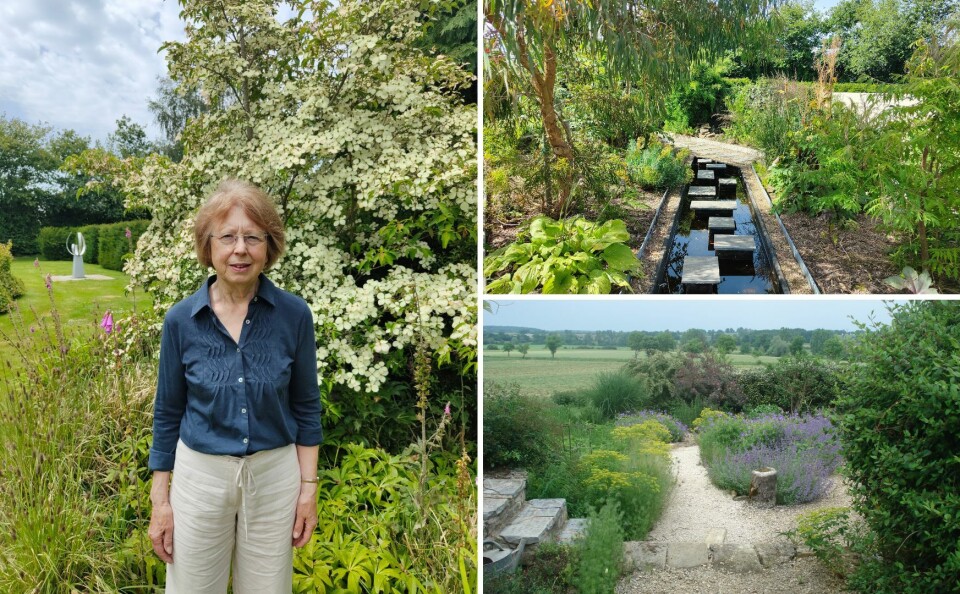
After the fierce heat of summer, our French gardens begin to blossom again with the cooler nights and (hopefully) gentle rains of September.
It is a good time to go garden-visiting.
Dream garden in Pays de la Loire
Shirley and Paul Edwards’ garden in Mayenne (La Bayette, 53190 La Dorée) is open under the Jardins Ouverts scheme on the weekend of September 10-11, as well as sur rendez-vous at other times (Tel: 02 43 05 10 72).
Pursuing their long held dream of a garden, the couple devoted themselves to learning more about horticulture in their retirement years.
Paul worked in a garden near Wye post-retirement, where he was inducted into the skills and magic of drystone walling, paving and pergola-making.
Shirley, meanwhile, worked away at a diploma with the Royal Horticultural Society and a six-week garden design course with Chris Beardsley.
Couple put new skills to work
Eventually, in 2016, their dreams and preparation led them to the garden at La Bayette, where the fruits of their labour are evident in the one-hectare site, which they created lovingly from the blank canvas of former pastureland and embroidered with a fascinating range of hard-landscaping features in discrete garden areas and planting styles to express different garden moods.
The dahlias look superb in September
One of Shirley’s lifelong dreams was to have a walled kitchen garden and she now has exactly that, complete with raised beds to aid cultivation as the couple age.
The breezeblock walls were constructed by the two together, without any outside help and successfully shelter an apricot, peach, fig tree and clematis (south wall), raspberry canes and asparagus (east), redcurrants, blackcurrants and gooseberries (north wall).
The potager is open to the west, but that boundary is planted with large dahlias, which will look superb in September.
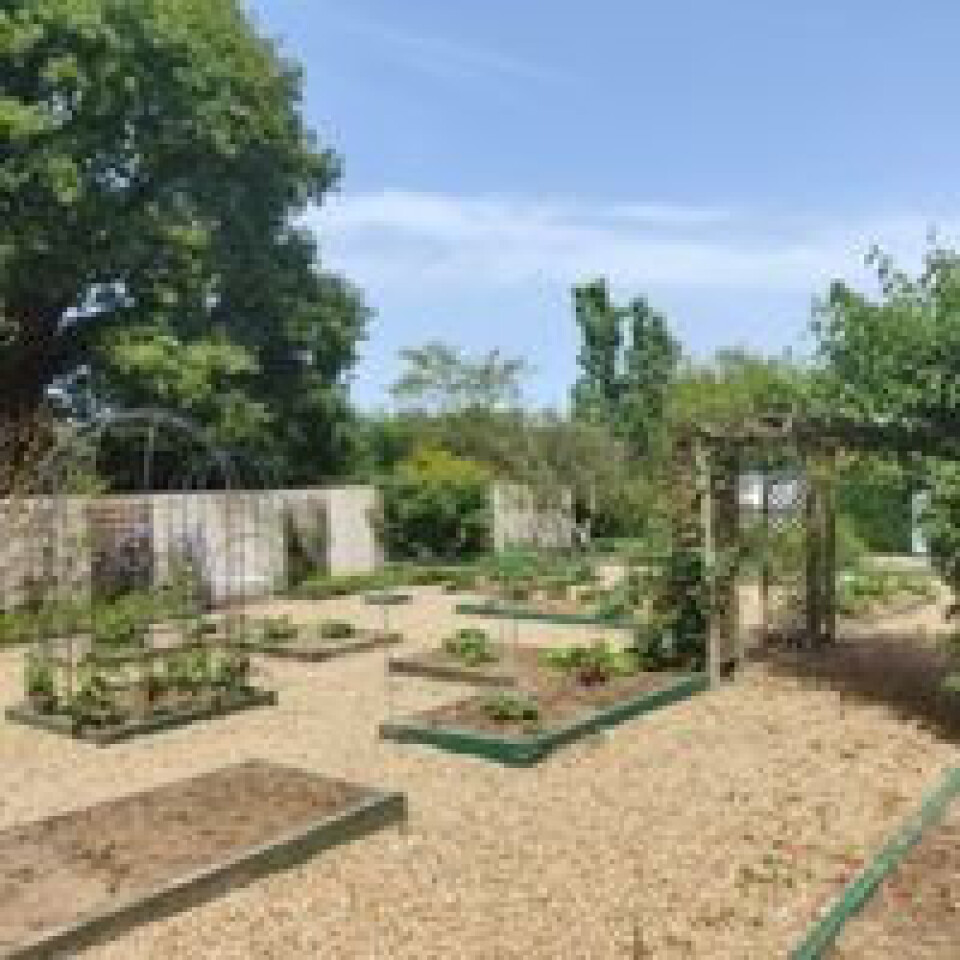
The walled kitchen garden; Photo: Shirley Edwards
Exotic planting
Shirley says that the Exotic Garden, with its water rill and waterfall (both created by Paul), will look particularly stunning in September.
Here you will find the lush foliage of bamboo, Musa sikkimensis (banana) ‘Bengal Tiger’ (with striped leaves), Eucalyptus nicholii (grown from seed, and featuring foliage that wafts a scent of mint when bruised), the amazing black berries of Phytolacca americana, carried on pink stems, ginger lilies (Hedychium) and Colocasia (from which taro root comes).
A garden full of surprises
The winding paths over-hung with vegetation lend a sub-tropical mood, making the visitor keen to explore further.
The sense of surprise as a new area is encountered always provokes visitor comment, to Shirley’s delight.
Surprise encounters, and frequent opportunities to rest on seating and benches to enjoy new vistas, were things that she deliberately incorporated into her design.
Nod to history in topiary garden
Ripe for exploration elsewhere are herb garden, orchard, herbaceous borders backed by lawns, the pool garden (with its winding, shady path), greenhouses, conifer border and arboretum.
Don’t miss the topiary garden, created with box (no sign of the dreaded Box Tree Caterpillar Moth to date).
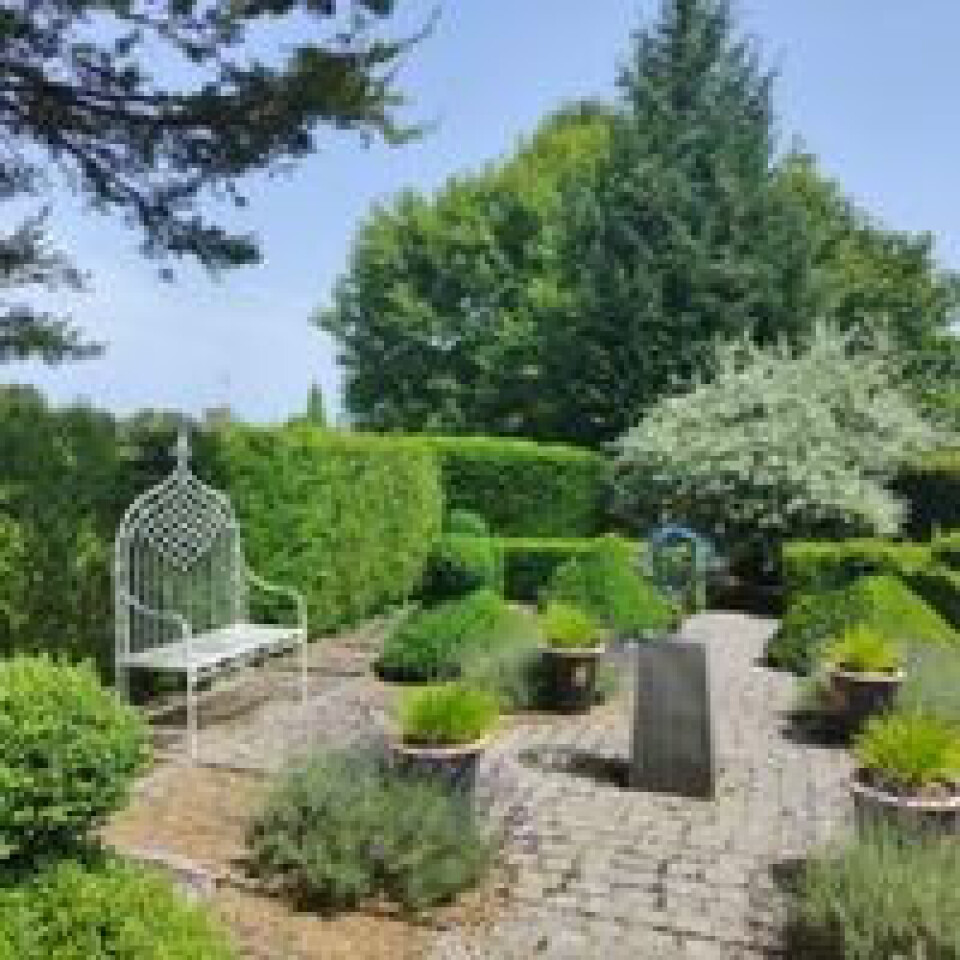
The topiary garden; Photo: Shirley Edwards
La Bayette was originally an old monastery and after hours of research, Shirley and Paul have marked the place’s history with a cunning collection of topiary shapes, each named for a medieval abbot.
Garden transformation in Aveyron
Elaine Morgan’s garden in the Aveyron (Maison de l’Arbre, Mas de Laurent, 12260 Villeneuve) is open by appointment only (Tel: 05 65 81 61 57).
Elaine and her Australian husband, David, now, sadly, no longer with us, moved to their house and garden in 2011.
Elaine originally thought she wanted to garden just small areas next to the house, with a potager near the old orchard: ‘I didn’t want to be a slave and I cannot garden in the heat.’
She and her husband therefore started work on the ‘garden’, which was quite simply ‘farmland and weeds’, by creating seven raised vegetable beds near the house, as well some areas for flowers.
Head-scratching and experiments
The potager was a mistake, she confides: ‘Herbaceous perennials are what I like to grow’.
But the keynote of this garden came about almost by accident when the installation and excavation for a swimming pool bequeathed two circular terraces (a total of about 1,000 sqm) that drop away on two levels from the pool itself, supported by retaining walls.
It took quite a bit of head-scratching and unsuccessful experimentation with wildflower mixes, not to mention the delivery of 3,700 young plants from the Netherlands before this area was developed into what is now her favourite part of the garden, the Prairie Garden, inspired by the designs of Piet Oudulf.
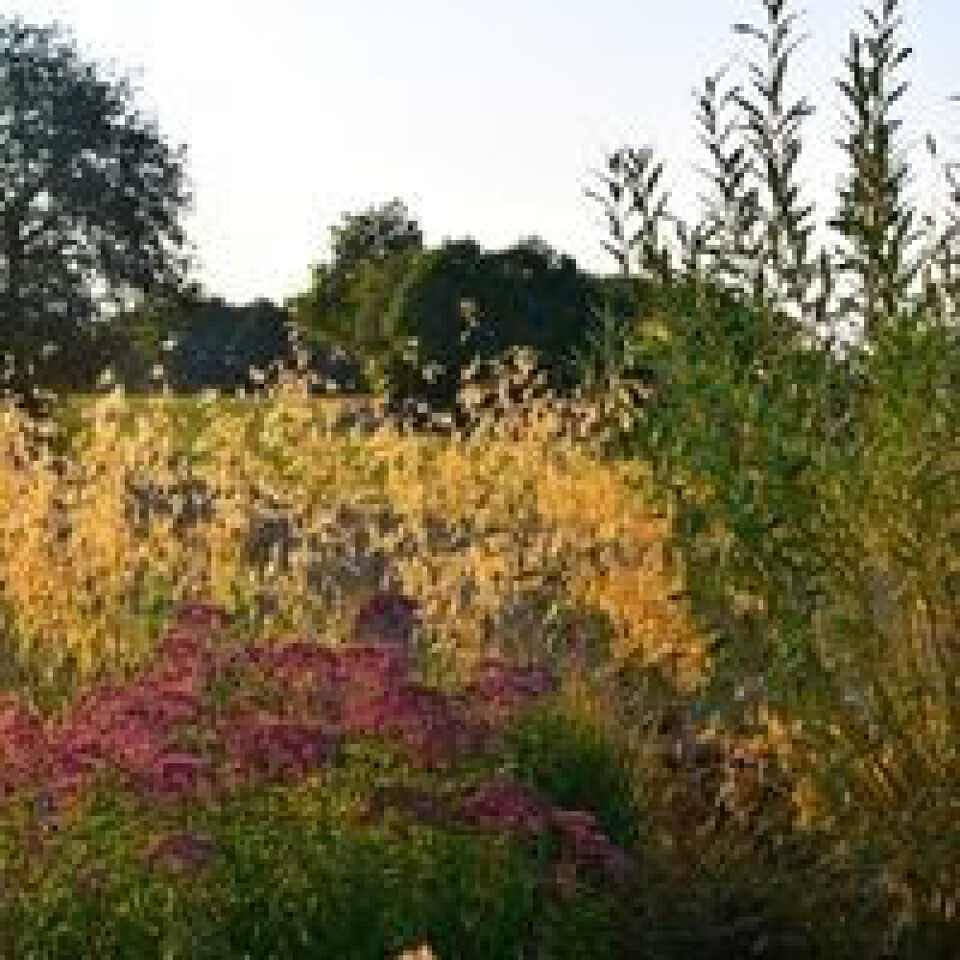
Planting in the Prairie Garden; Photo: Elaine Morgan
Good design is invisible
The natural curves of the paths through the planting areas were originally laid out by David with hosepipe.
A former engineer, he also devised an ingenious system to create a planting plan: the whole area is based on a pattern of 3.5 to 1m blocks, with 24 plants to each block.
In September, wandering through the jewel-like results of late summer flowers and swaying grasses all of this preparation is, as is the case with any good theatre design, invisible to the eye.
‘Some plants won’t thrive, celebrate the ones that do’
Some of the plants that the Dutch lorry brought to the Mas de Laurent petered out, notably monardas, which have a tendency to be short-lived in any case.
But Miscanthus, Pennisetum and Panicum thrive, along with the daisy flowers of Echinacea.
The stipas, such as Stipa gigantea, can be trickier Elaine says, since they do like a little summer moisture.
Although so many plants were delivered initially, Elaine still does a fair bit of propagation by division, but is always delighted when things like echinacea seed themselves about.
‘I think you have to accept that some plants won’t thrive and celebrate the ones that do and try to keep a balance overall.
It can be important to remember that it’s meant to be a pleasure not a burden!’
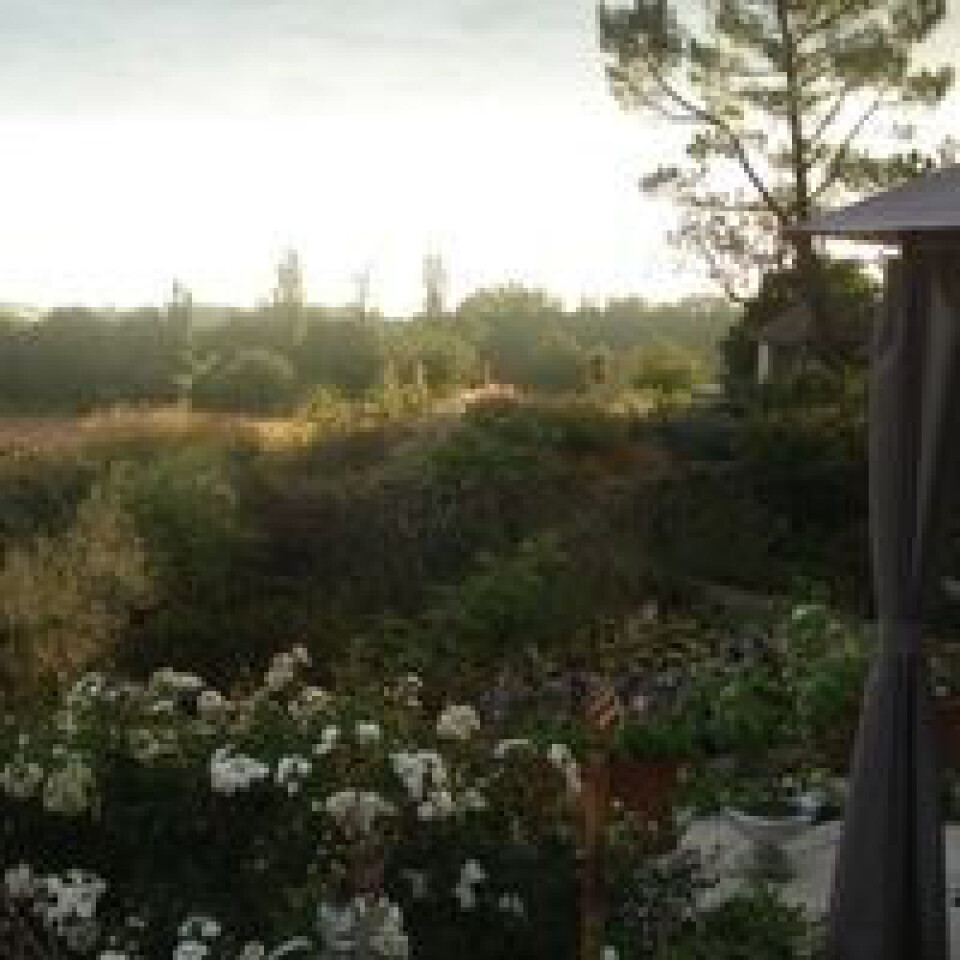
Garden blends into countryside; Photo: Elaine Morgan
Back to that swimming pool which literally ‘sowed the seed’ for the Prairie Garden.
Elaine spends many a happy hour there now enjoying what pleases her most about this place: ‘The chief beauty of the garden, to me, is the way it blends with the fields beyond.’
Head to the Jardins Ouverts website for details of many other gardens opening this year.
Related articles
French garden: choose drought tolerant daisies and echinacea
South-west France residents cannot water gardens for three months
Help bees - grow their favourite colour flowers in your French garden
























